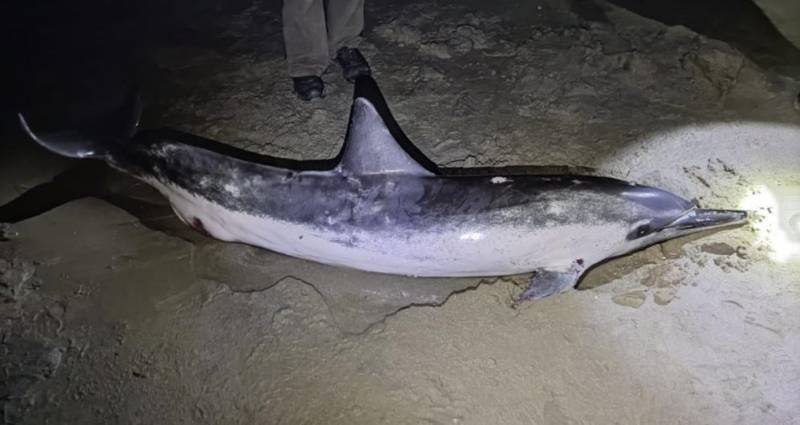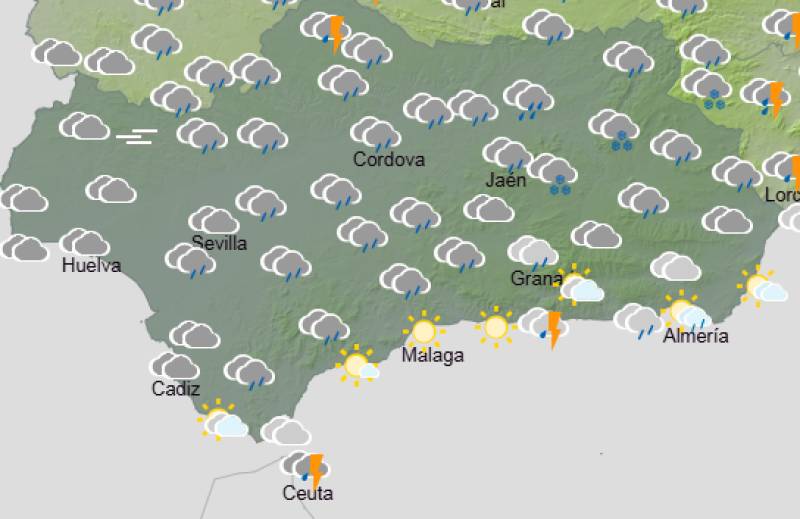

- EDITIONS:
 Spanish News Today
Spanish News Today
 Murcia Today
Murcia Today
 Alicante Today
Alicante Today
article_detail
Date Published: 14/12/2023
Washed up in Spain: Two tropical dolphins never before seen in Europe
Scientists are baffled over how the deep-water dolphins could have arrived in the shallow waters of southern Spain

Last November 11, according to a recently released statement from the Junta de Andalucía’s Department of Sustainability, Environment and Blue Economy, police in the southern Spanish locality of Barbate (Cádiz) received calls to let them know that two live dolphins were stranded on the Hierbabuena Beach.
By the time a specialist team from the Junta arrived, however, both animals were already dead. But they did notice something strange.
The two individuals, both adult males, had longer than usual noses, or snouts, and were identified as Spinner dolphins (Stenella longirostris). It’s a species that is normally found in off-shore tropical waters around the world, usually in Central America. This is the first ever record of this species on the continent of Europe.
The bodies of the two animals were transferred to the Marine Environment Management Centre of the Strait so that necropsies could be performed to study the exact causes of death.
But the real mystery is what were they doing in the area in the first place? They are found mainly in deep waters far from the coasts, so how did they arrive in the relatively shallow waters of the Strait of Gibraltar, where the Atlantic Ocean meets the Mediterranean Sea?
The status of this species according to the Red List of Threatened Species of the International Union for Conservation of Nature (IUCN) is of ‘Least Concern’, although currently there is a lack of general knowledge about population trends for this animal.
In-depth results of the necropsy will reveal more about how and why the animals were in this area, and what the cause of death was.
The Emergency Programme against strandings of marine mammals and sea turtles in Andalucía responded to a total of 4,555 stranding episodes between 2008 and 2022, of which 2,565 (56%) were of cetaceans and 1,990 (44%) were of sea turtles.
In that same period, the programme’s technicians carried out 642 necropsies on 16 different species of cetaceans throughout the region. From the results obtained, it was observed that around 75% of the specimens died from causes of natural origin while the remaining 25% were affected by causes of anthropic origin, highlighting mainly accidental capture with fishing gear.
Image: Junta de Andalucía
staff.inc.and
Loading
See more news about animals in Spain:
OR
Sign up for the Spanish News Today Editors Roundup Weekly Bulletin to get a comprehensive email with all the week’s news for Spain, Murcia, Alicante and Andalucía.
Get a sneak peek – here are a few of our recent Subscription Bulletins:
Discount Special Offer subscription:
36.95€ for 48 Editor’s Weekly News Roundup bulletins!
Please CLICK THE BUTTON to subscribe.
Contact Murcia Today: Editorial 000 000 000 /
Office 000 000 000



















